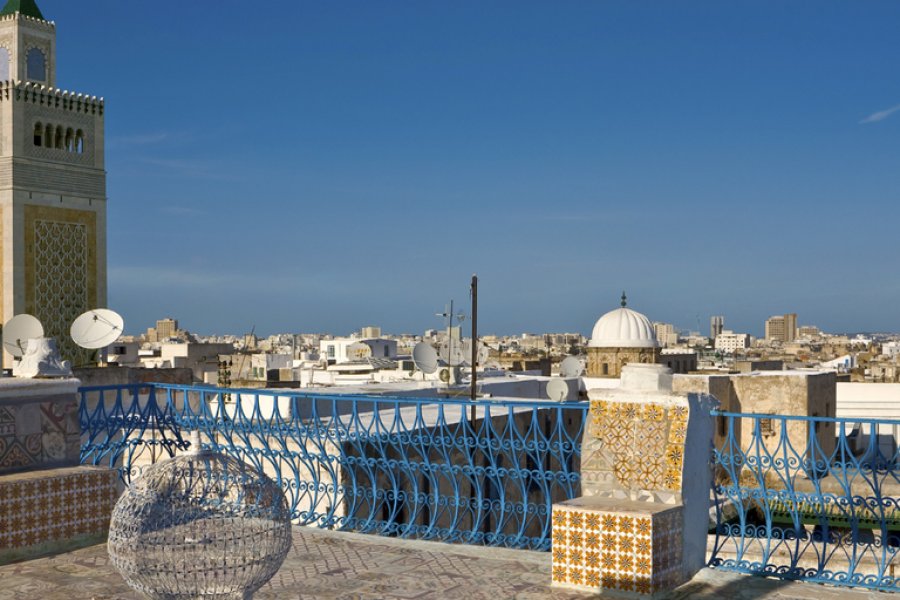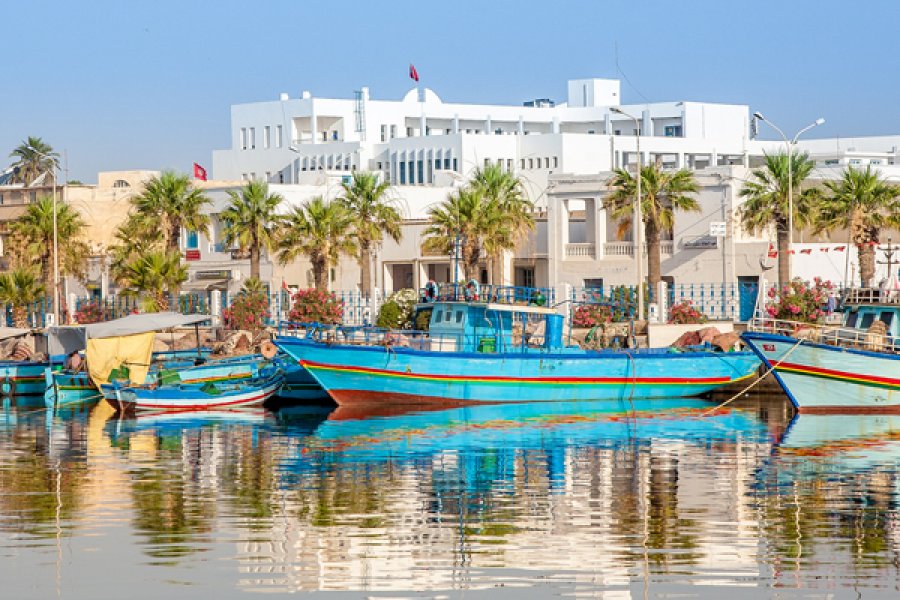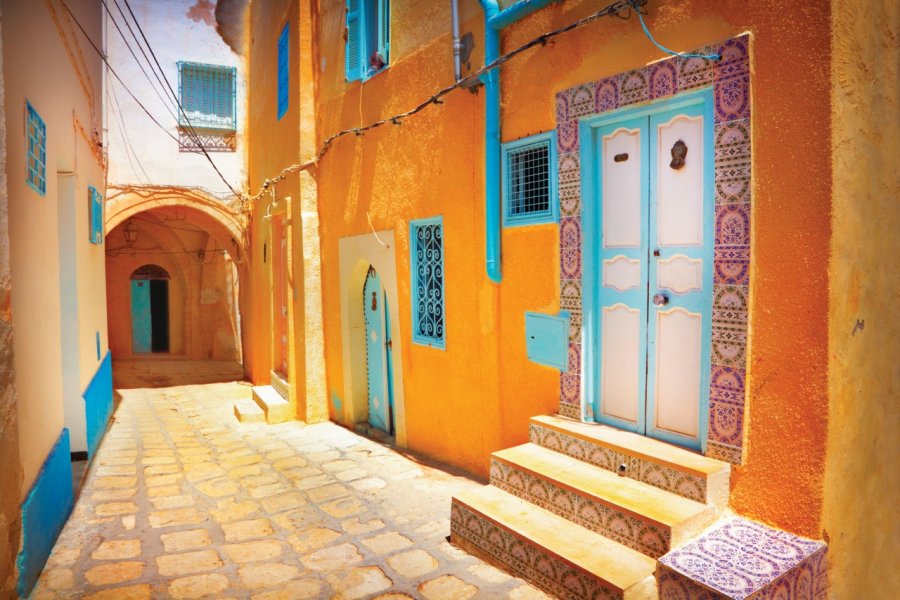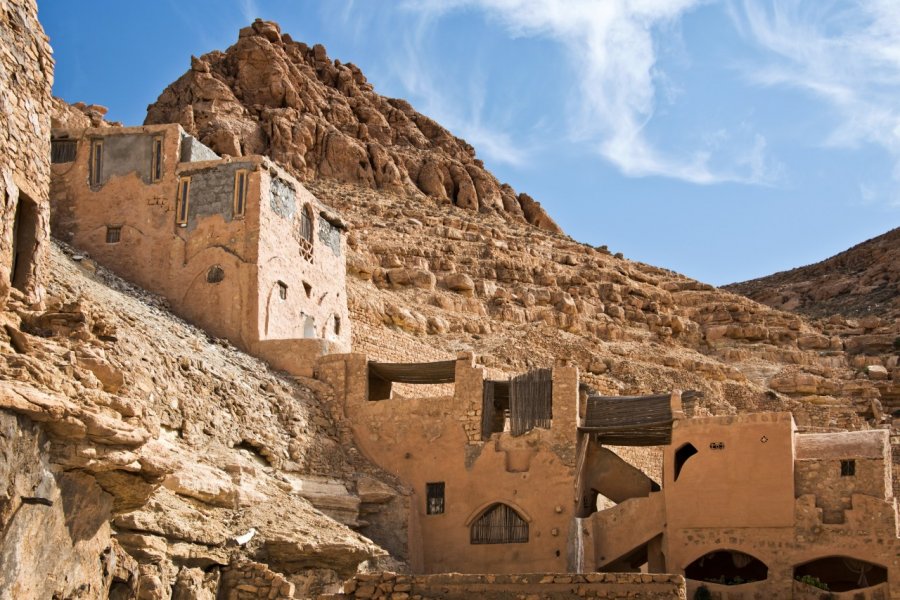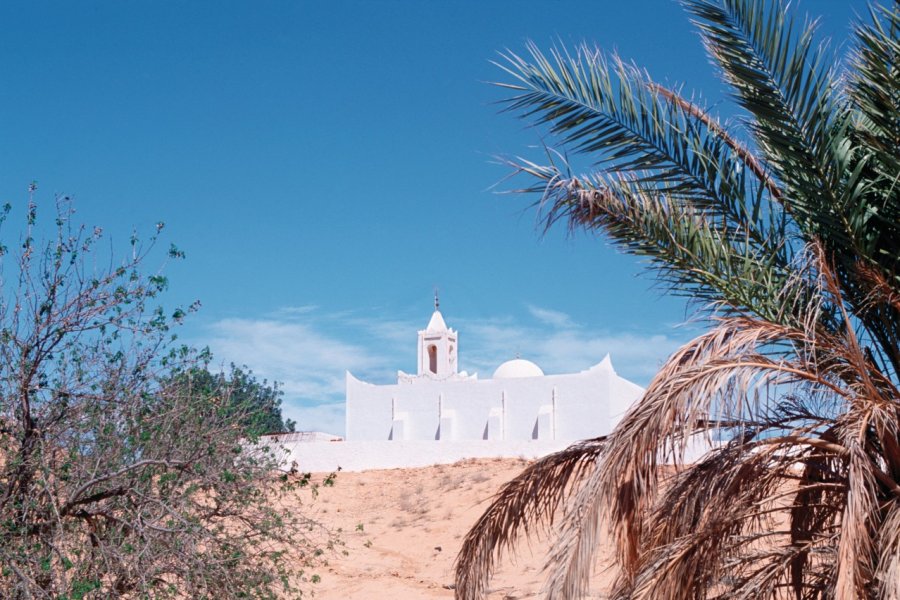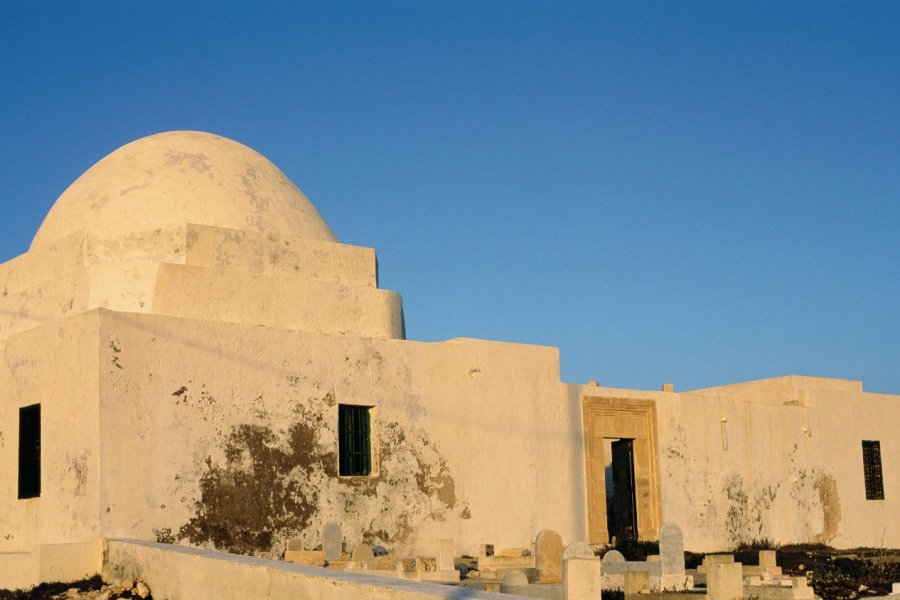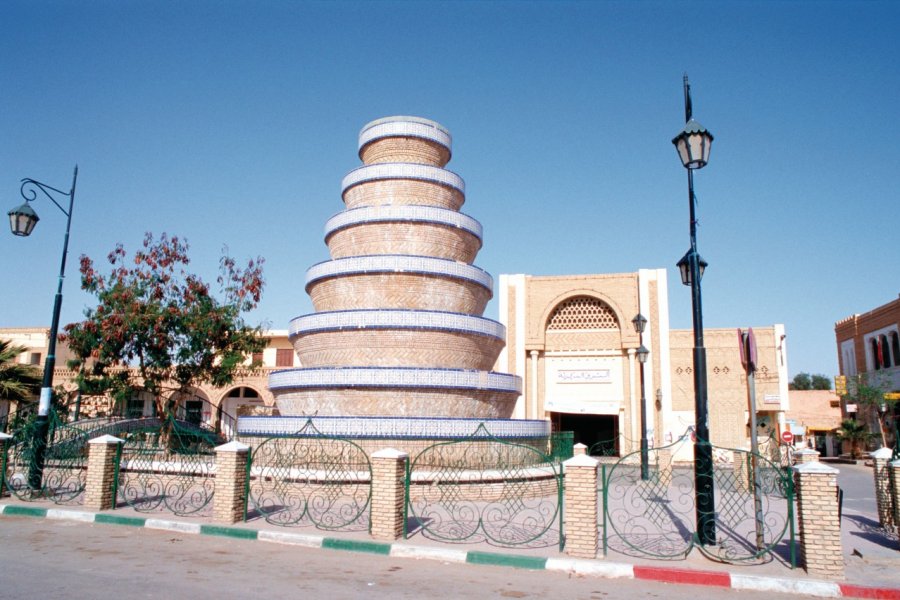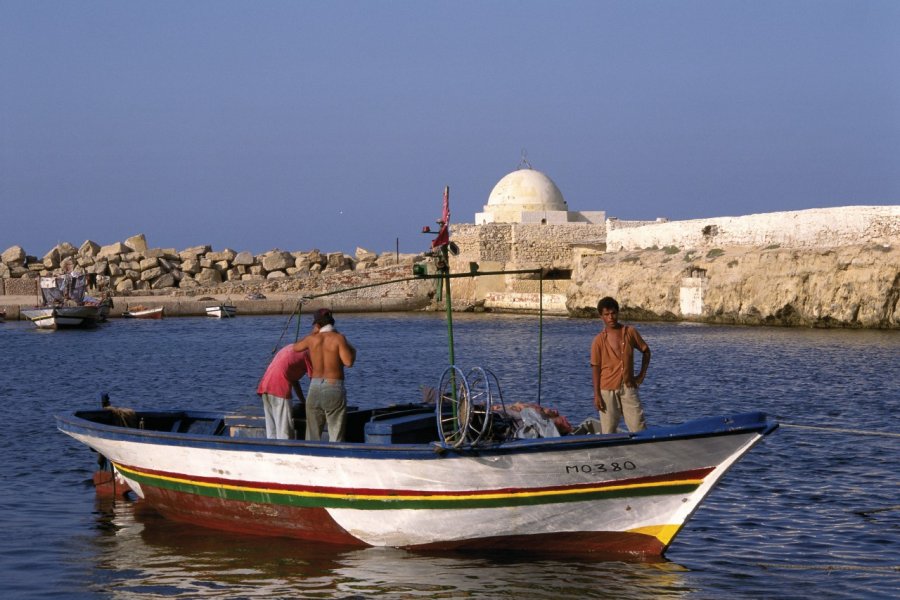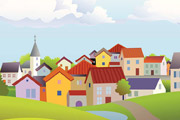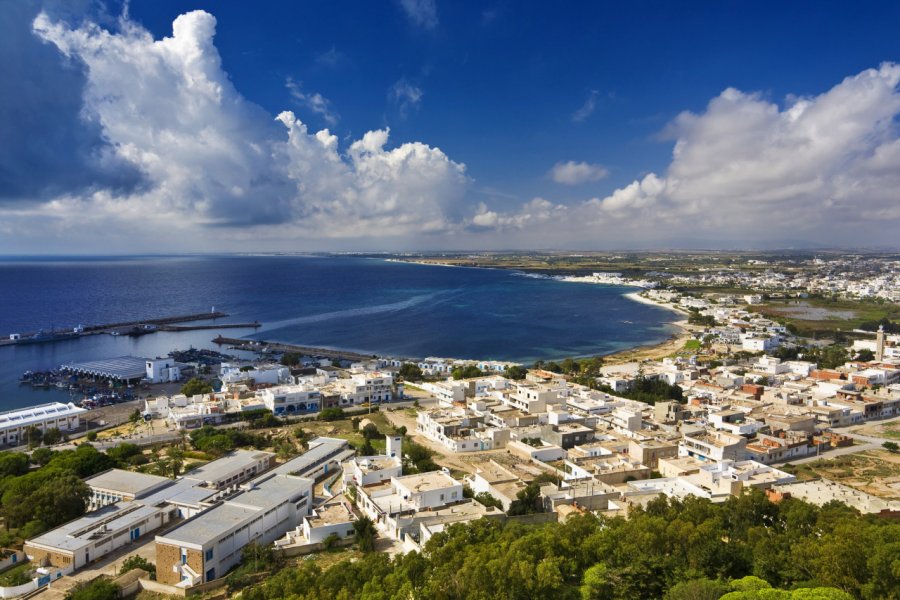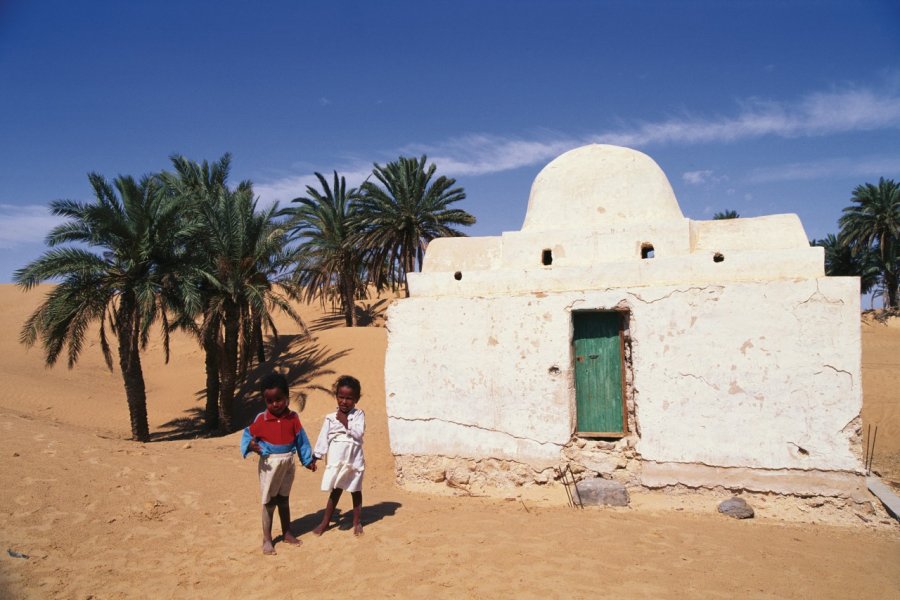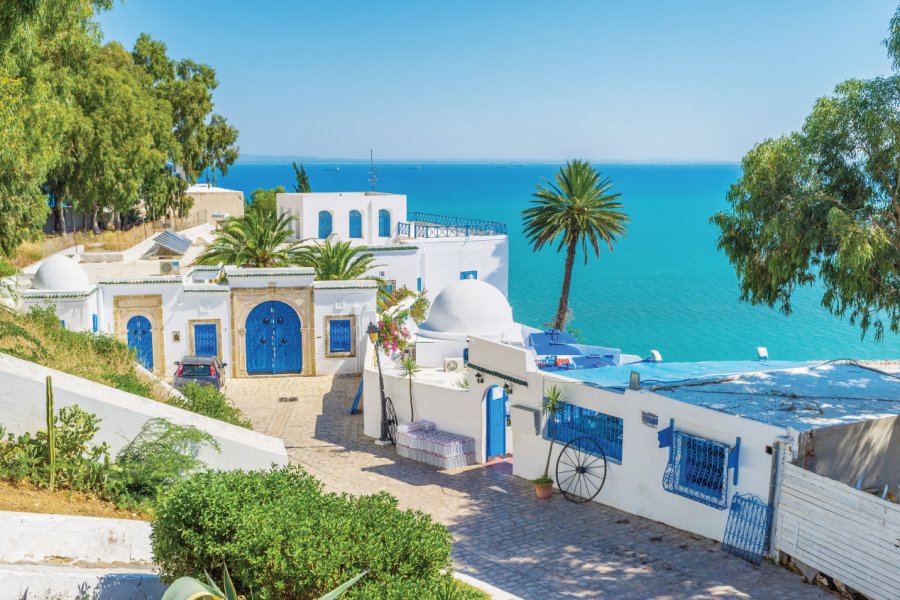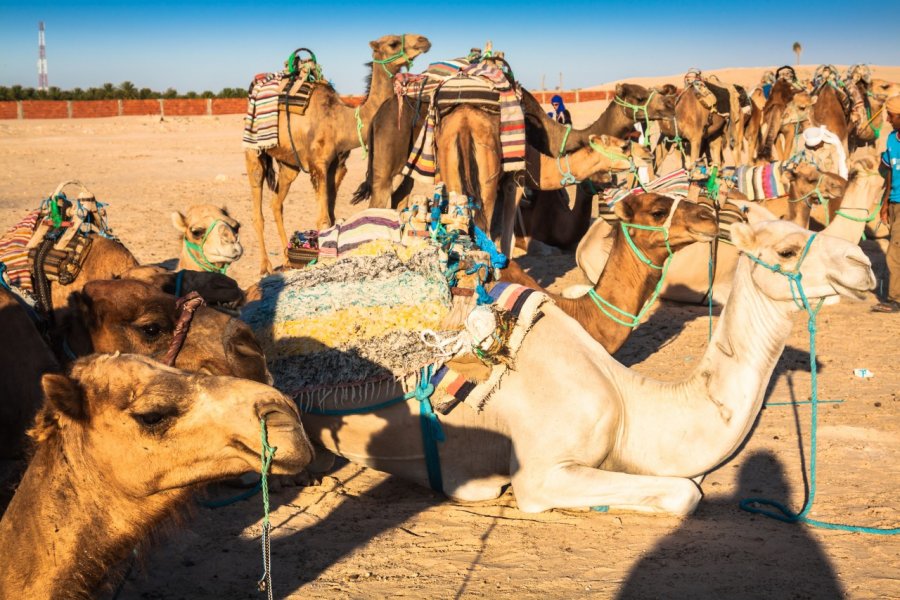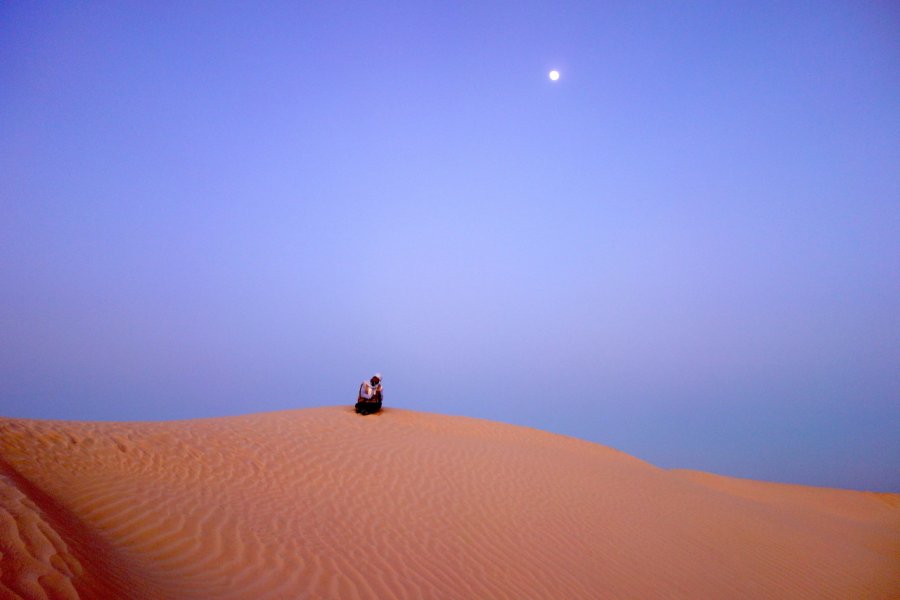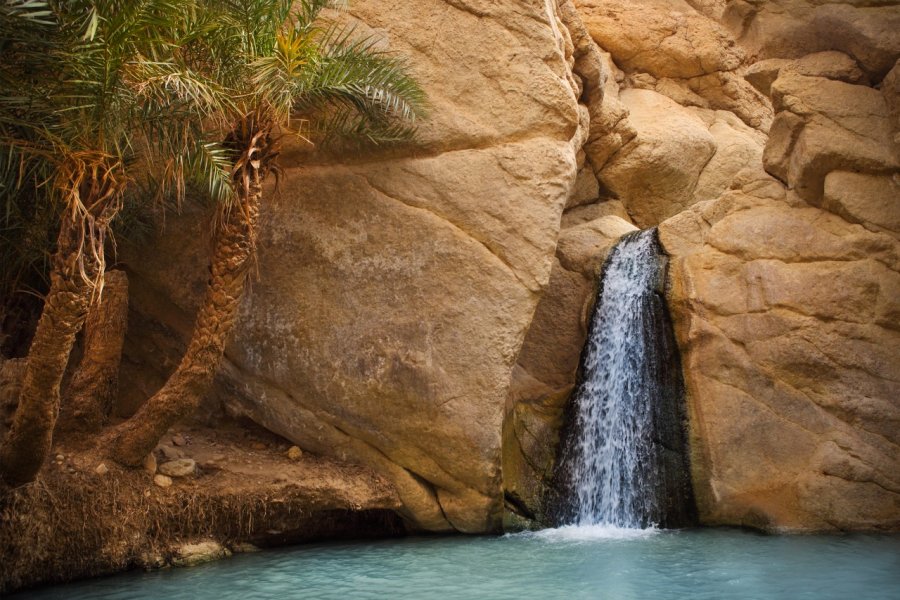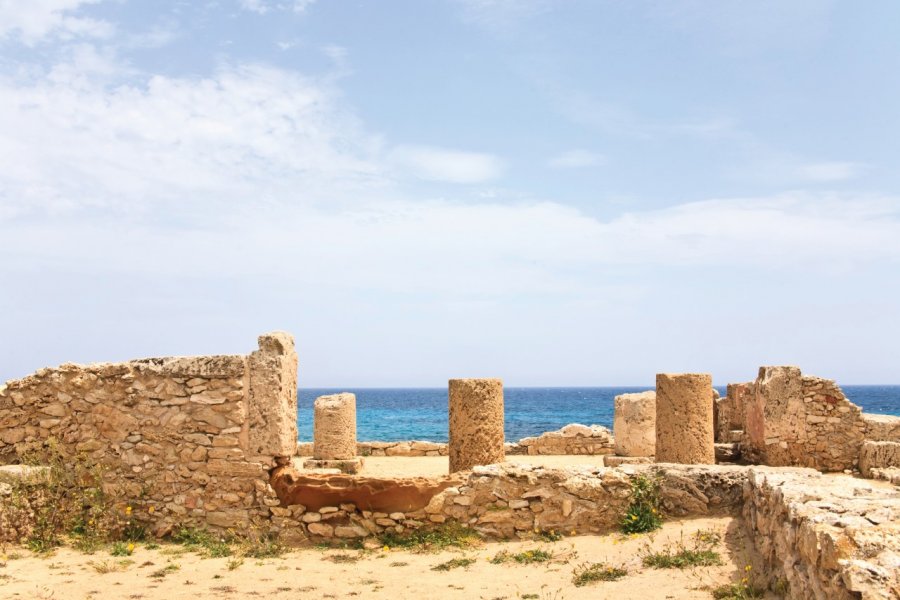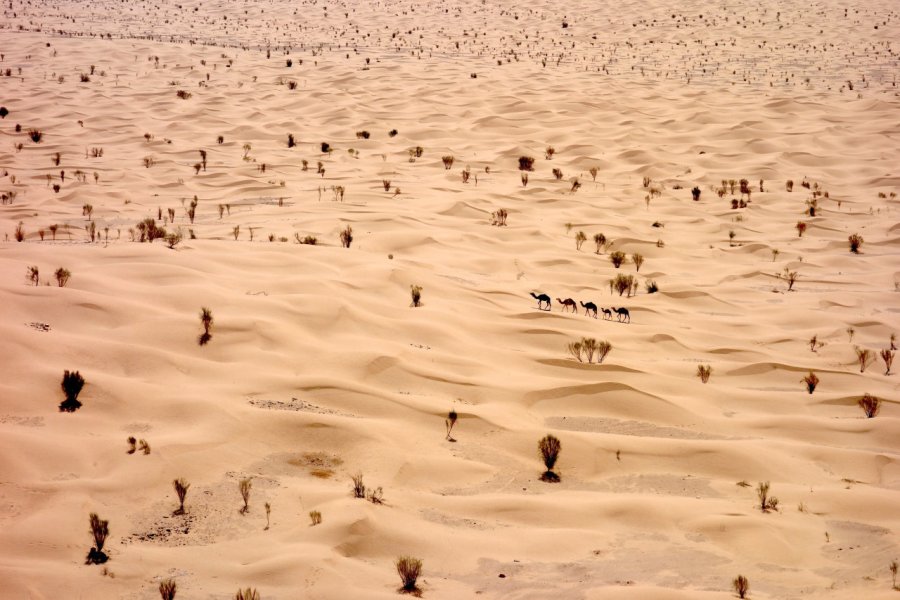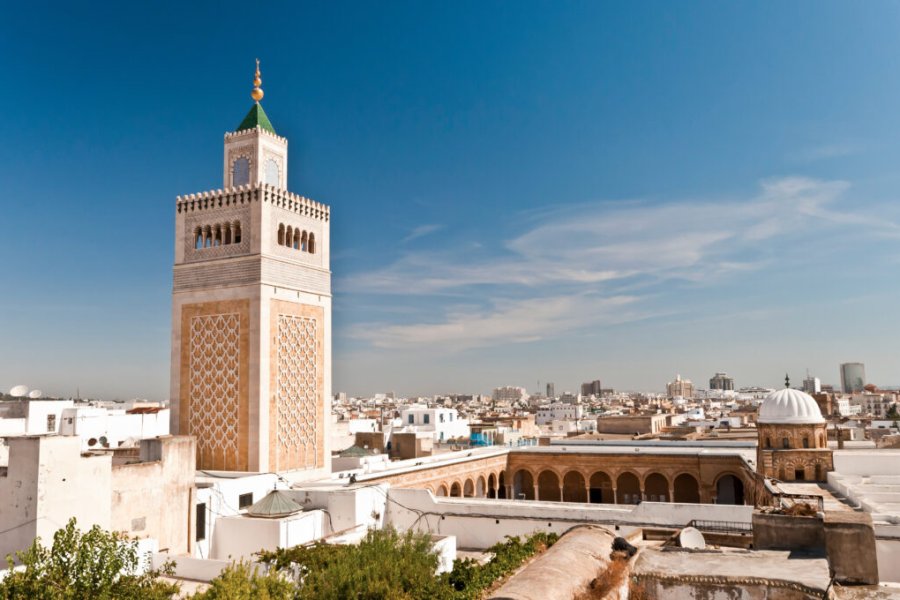Why go to Tunisia? The 10 good reasons to go Tunisia

Well-preserved medinas
Mosques, souks, the old cities are a marvel of the senses and discoveries!

You are welcome!
We'll tell you several times a day: Tunisian hospitality is second to none!

600 km of sandy beaches
Resolutely turned towards the sea, Tunisia abounds in magnificent beaches.

Sublime archaeological sites
More than 3,000 years of history for several Unesco World Heritage sites!

A change of scenery two hours from Paris
So accessible, a trip to Tunisia will allow you to overcome the clichés about the East!

The Sahara easily accessible
The Tunisian desert is accessible and secure: a chance for dune lovers!

Unparalleled flavors
Couscous, lablabi, brik... and many pastries: the local cuisine will delight your palate.

A variety of (beautiful) landscapes
Ancient sites, sea, deserts or mountains: a land of contrasts easy to explore.

A living Berber culture
In many rural areas, Amazigh traditions are still very much alive!

Accommodations to charm you
Habitats (palaces, menzel...) are restored with taste for the happiness of travelers!
What to visit Tunisia?

Interview: My Tunisia
By Aurélie Croiziers de Lacvivier, author of the guide
A lover of people and words, Aurélie is committed to sharing her experiences and crossing borders. Since 2009, she has been sharing her stories on the Curieuse Voyageuse blog and has published several guides, stories and novels. After working for several years in the tourism industry, she has now turned her attention to writing. The mother of French-Malian children, she is passionate about the African continent, which she travels to whenever she can!
See the video of the interviewGood to know to visit Tunisia
 Timetable
Timetable
Unlike some Muslim countries where the day off is Friday, the day of the High Prayer, in Tunisia the day off is Sunday.
Stores are generally open Monday to Friday from 8am to 12:30pm and 2:30pm to 6pm, and from 8am to midday on Saturdays. In summer, stores only open from 8am to 1pm, due to the heat; this is known as the "one-shot" rule. However, you'll find a number of small independent boutiques open very late at night and very early in the morning. In July and August, offices close at 1.30pm.
Please note that during the month of Ramadan (lunar calendar), opening times are subject to change.
 To be booked
To be booked
For your desert getaways, it's best to organize your excursions in advance, so don't hesitate to contact guides or agencies at least three weeks before your arrival!
 Budget & Tips
Budget & Tips
Entrance to a museum costs around 8 DT, and there are sometimes combined tickets for several sites in the same city, as in Carthage, where for 12 DT you can visit the city's main sites.
 Main events
Main events
Among the events organized in Tunisia, here are the three not-to-be-missed festivals if you're in the region at that time: in July, the Festival International de Carthage, where dance, music and theater take center stage; in August, the Tabarka Jazz Festival, which takes place in this beautiful town in the north of the country; and finally, in December, Douz hosts the Festival International du Sahara, where you'll discover a whole range of nomadic culture...
 Guided tours
Guided tours
Discovering Tunisia with a guide will take you beyond the clichés. In the Sahara, it's more than recommended, and even compulsory in certain areas, but we also recommend the presence of a local guide in the Dahar region, in cities with a strong history, such as Tunis or Carthage, or on important archaeological sites. We recommend some of these guides, whose services we have tested and approved!
 Smokers
Smokers
Tunisia is a smoker's paradise. Smoking is common everywhere, including in restaurants, much to the annoyance of non-smokers.
 What's very local
What's very local
When visiting mosques, there are certain dress code rules that must be followed out of respect for those practicing their religion. Men are advised to wear long-sleeved shirts or T-shirts and long pants. Women are asked to wear clothes covering their shoulders and legs, and a headscarf. Before entering the premises, you'll need to remove your shoes. There are usually places to leave them at the entrance to the mosque. Some mosques can be visited by everyone, Muslims or non-Muslims, especially the courtyards and common areas, while others cannot. If a visit is possible, it is usually mentioned in this guide.
